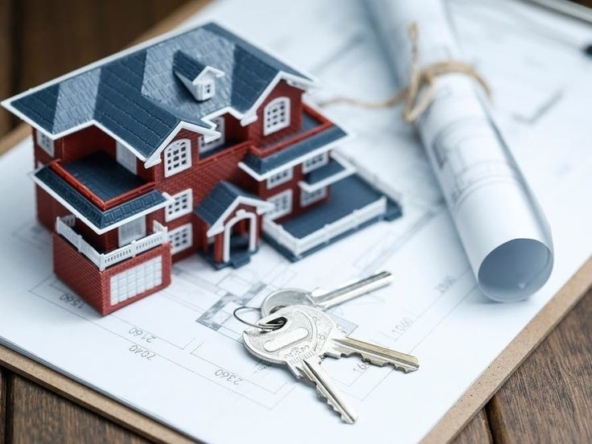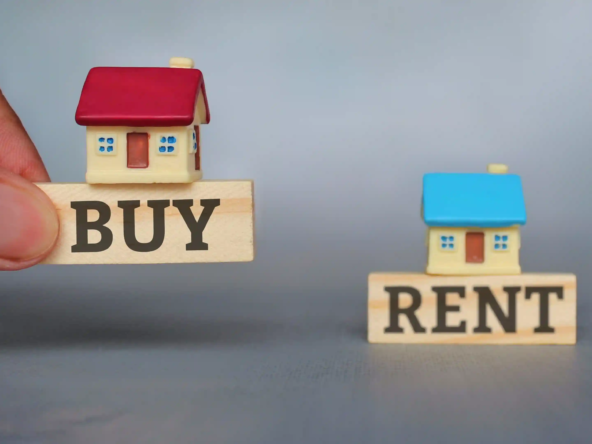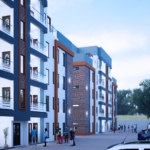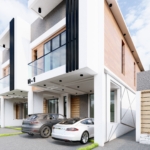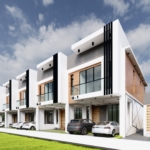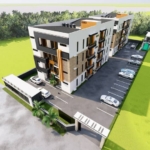First-Time Home Buying Guide: Buying your first home is a significant milestone, but it can also be stressful—especially in Nigeria, where real estate transactions often come with complexities. Whether you’re looking to purchase in Lagos, Abuja, Port Harcourt, or any other city, knowing the right steps to take can save you from costly mistakes.
This comprehensive guide covers everything you need to know before buying your first home in Nigeria, including financing options, location selection, legal requirements, and avoiding scams.
1. Set a Realistic Budget
One of the biggest mistakes first-time homebuyers make is underestimating the total cost of purchasing a home. Beyond the listed price, there are additional expenses you should consider:
A. Key Costs to Expect
- Property Price: The base cost of the house or apartment.
- Legal Fees: Usually 5-10% of the property value, covering title verification, documentation, and legal representation.
- Agency Fees: Typically 5% of the purchase price if you’re using a real estate agent.
- Survey and Title Registration: These government charges depend on the location and type of property.
- Renovation Costs: Many properties require upgrades before moving in.
- Service Charges: If you’re buying in an estate or gated community, you may need to pay monthly or yearly maintenance fees.
Pro Tip: Ensure you have a financial buffer of at least 10-20% of the property price to cover unexpected costs.
2. Choose the Right Location
The location of your home affects everything—your daily commute, property value, and even security.
A. Factors to Consider When Choosing a Location
- Accessibility: How close is the property to your workplace, schools, hospitals, and markets?
- Security: Research crime rates, speak to residents, and check if the area has good police presence.
- Infrastructure: Look for good roads, drainage systems, stable electricity supply, and access to clean water.
- Resale Value: Will the property appreciate over time? Buying in a developing area can be a smart investment.
B. Best Locations for First-Time Home Buyers in Nigeria
- Lagos: Lekki, Ajah, Ibeju-Lekki (for developing areas); Ikeja, Surulere (for central locations).
- Abuja: Gwarinpa, Lokogoma, Jahi, Lugbe.
- Port Harcourt: Peter Odili Road, GRA Phase 3, Elelenwo.
- Other Cities: Ibadan (Bodija, Akobo), Enugu (Independence Layout), and Kano (Nasarawa GRA).
Common Mistake to Avoid: Many buyers focus only on affordability and ignore infrastructure. Cheap homes in poorly developed areas may lead to regret later.
3. Understand Your Financing Options
Unless you’re paying in full, you’ll need to finance your home purchase.
A. How to Finance Your First Home in Nigeria
- Personal Savings: If you have enough savings, this is the simplest way to buy a house without debt.
- Mortgage Loans: Nigerian banks and institutions like the Federal Mortgage Bank of Nigeria (FMBN) offer home loans.
- Real Estate Cooperatives: Some cooperative societies offer affordable home financing plans.
- Installment Payment Plans: Some developers allow buyers to spread payments over several months or years.
B. How to Qualify for a Mortgage in Nigeria
- A stable income source.
- A good credit history.
- A minimum down payment (usually 20-30% of the home’s value).
- A valid means of identification and employment proof.
Pro Tip: Compare mortgage options from different banks and real estate companies before making a decision.
4. Verify Land Titles and Property Documents
Real estate fraud is common in Nigeria, and many buyers lose their money due to improper documentation.
A. Essential Documents to Verify Before Buying a Property
- Certificate of Occupancy (C of O): Proves legal ownership and government approval.
- Governor’s Consent: Required for any subsequent land transactions after the initial C of O.
- Deed of Assignment: Transfers ownership from the seller to the buyer.
- Survey Plan: Shows the exact land location and boundaries.
- Building Plan Approval: Confirms the structure complies with government regulations.
B. How to Conduct a Title Search
- Visit the Lands Registry in the state where the property is located.
- Hire a real estate lawyer to confirm the authenticity of the documents.
- Verify that there are no encumbrances, unpaid debts, or legal disputes on the property.
Common Mistake to Avoid: Never pay for a property without confirming all legal documents. Fake land titles are common in Nigeria.
5. Work with a Reliable Real Estate Agent
A good real estate agent can save you time and help you find the best deals, but bad agents can scam you.
A. How to Find a Trustworthy Real Estate Agent
- Work with established agencies or verified property platforms.
- Check online reviews and ask for referrals.
- Never pay an agent upfront without seeing valid property options.
B. Red Flags to Watch Out For
- Agents who pressure you to make a quick decision.
- Properties with incomplete or suspicious documents.
- Unusually cheap deals that seem too good to be true.
6. Inspect the Property Before Buying
A home may look good in pictures, but an on-site inspection is necessary.
A. What to Check During an Inspection
- Structural Integrity: No major cracks, leaks, or foundation issues.
- Plumbing & Electrical Systems: Functional taps, drainage, and wiring.
- Ventilation & Lighting: Good air circulation and natural light.
- Neighborhood Environment: Safety, noise levels, and amenities.
Common Mistake to Avoid: Relying solely on the seller’s description or photos. Always visit the property in person.
7. Finalize the Purchase and Documentation
Once you’ve chosen your home, follow the correct legal process to avoid future disputes.
A. Steps to Take When Closing a Property Deal
- Negotiate the Price: There’s always room for negotiation, so don’t accept the first asking price.
- Draft a Sales Agreement: Have a lawyer prepare a legally binding contract.
- Make Payments Securely: Pay through traceable means like bank transfers, not cash.
- Transfer Ownership Properly: Ensure all necessary documents are signed and registered at the state’s land registry.
Common Mistake to Avoid: Rushing the process. Double-check everything before making final payments.
8. Plan for Future Expenses
Owning a home comes with maintenance costs that first-time buyers often overlook.
A. Expenses to Prepare For
- Renovations or Repairs: Fixing minor damages and making upgrades.
- Property Taxes: Annual land use charges or property levies.
- Security & Utility Bills: If in a gated community, there may be extra charges.
Pro Tip: Have an emergency fund for unexpected home-related expenses.
Conclusion: Making the Right Home-Buying Decision
Buying your first home in Nigeria is a major investment, and being well-informed can save you from costly mistakes. By understanding financing options, verifying legal documents, choosing the right location, and working with reliable professionals, you can confidently purchase your dream home.
Are you a first-time homebuyer with questions? Drop them in the comments below or contact usContact for expert real estate.



